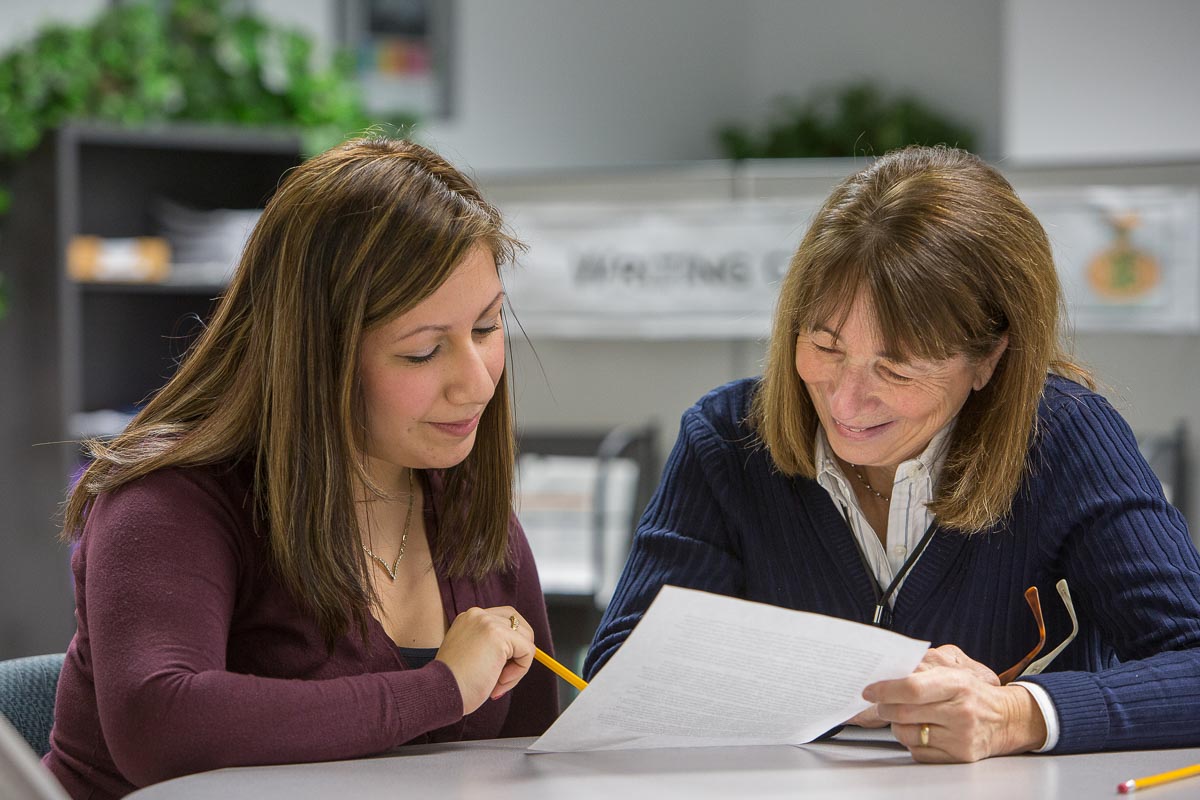Roughly 14 percent of the Houston area's young adults are neither enrolled in school nor working. Four recently launched Houston-area initiatives seek to target those young people across the region with programs focused on re-enrolling or connecting them to higher education, providing career planning or training with specific employer partners.
With $1.3 million from JPMorgan Chase & Co. and $250,000 from the Trellis Foundation, the partnerships selected by the Communities Foundation of Texas' Educate Texas effort aim to reengage young adults, sometimes called opportunity youth, who may have stopped shy of earning a credential or not quite made it to the next the step.
In some ways the odds are daunting. "About half of our opportunity youth and young adults live in a household that has a child, whereas 84 percent of their counterparts don't," explained Hannah Gourgey, an education consultant who worked on the initiative with partners like the Houston Community College, Project Grad and Baylor College of Medicine. They also experience a "far greater amount of food insecurity," according to Gourgey, and roughly 30 percent of them reported a level of disability that prevented them from working. "I think that is something we haven't addressed as fully," she noted, "but it's something we're seeing in the cohorts."
Still, there are also some encouraging signs, including a relatively large share, roughly a third, who have attended some college compared to similar populations elsewhere. "It is not uncommon to have a pretty high rate of high school completers," Gourgey explained, "but beyond high school is the unique component."
And there's the resilience of the young adults themselves.
"The idea that they aren’t motivated enough or don’t want to change or make a better life for themselves is absolutely false," researcher Kimberly Johnson told the Urban Edge in 2016 after working with focus groups for a Kinder Institute study underwritten by JPMorgan Chase & Co. capturing the experiences of young adults who aren't working or in school. "A lot of times, they’ve been through so much. If the average person knew how much they faced, I’m not sure how they would go through with their lives."
The funding will support four pilot programs across the Houston area.
Project Grad's GradCafé on the Go offers a mobile version of the nonprofit's outreach and career counseling services that help students who started but didn't finish college navigate higher education. "One of the things Project Grad found was the family obligations were a big deal but it was really those obligations or a failing grade combined with a lack of direction in college," said Gourgey, who explained that interviews and surveys helped inform the development of the effort. "They weren't really clear why they were taking the courses they were taking or how it led to a career," she added. "When that combined with a failing grade or inability to pay tuition, they dropped out."
There have been changes in the K-12 system intended to better map out career paths at an earlier age through the use of "endorsements" or majors in high school, where Johnson said her research suggested interventions were needed. But the rollout is still relatively new. "We're finding a lot of teachers and parents even are still trying to understand what those endorsements are," said Natalie Applegate, an associate with the Texas College Access Network, part of Educate Texas.
To support Project Grad's effort, Houston Community College hired a student advisor to serve this specific population, which JPMorgan Chase's vice president of global philanthropy Carolyn Watson hopes signals lasting institutional change. "This is showing signs of influencing system change," she said.
The program will focus on Acres Homes, Northside, Gulfton and Houston's multiservice centers.
The Career My Way initiative from Capital Idea places a similar emphasis on career counseling but through an aptitude assessment and career simulations. "They get to first learn a whole lot about what they're good at," said Gourgey. "It sort of recasts their view of themselves." The career simulations can be as simple as showing someone who might not otherwise have access to but is interested in a career in health what phlebotomy looks like, according to Gourgey. The program can then link individuals to further training opportunities through groups like Workforce Solutions or the Harris County Department of Education.
The funding will also support the Baylor College of Medicine's Ascend program which will offer training programs for youth interested in careers like medical data entry or patient navigation. "They have an actual HR person in their HR department," explained Gourgey, "his job is to work intensively with the Baylor Teen Health Clinic Ascend participants." Though the effort offers training for such jobs, it doesn't have a specific hiring commitment. "It's a really challenging sell to require employers to hire," explained Watson. "It's ultimately up to them."
Through SERJobs, the funding will also support similar paid training programs, plus up to a year of follow up, for the construction industry in roofing and drywall.
The partnerships represent a step forward, but gaps remain.
People with a criminal background, for example, will be handled on a case by case basis, according to Gourgey. Young adults without documentation will be encouraged to stay in school but employment opportunities are limited. "It's high time for our state and country to figure out some policies that would enable them to legally work here," said Gourgey. And for those individuals dealing with disabilities that leave them unable to work, there's another set of barriers.
"For the first round of pilots, we realized if we were going to build capacity, we had to focus and not solve for everyone," said Watson. "This was not in the lexicon of the Houston community," she said, explaining that she's hopeful early success will encourage further investment and change. "[There are] so many assets with this group: they're young, they're resilient. Our focus groups have shown they have big aspirations for themselves."

